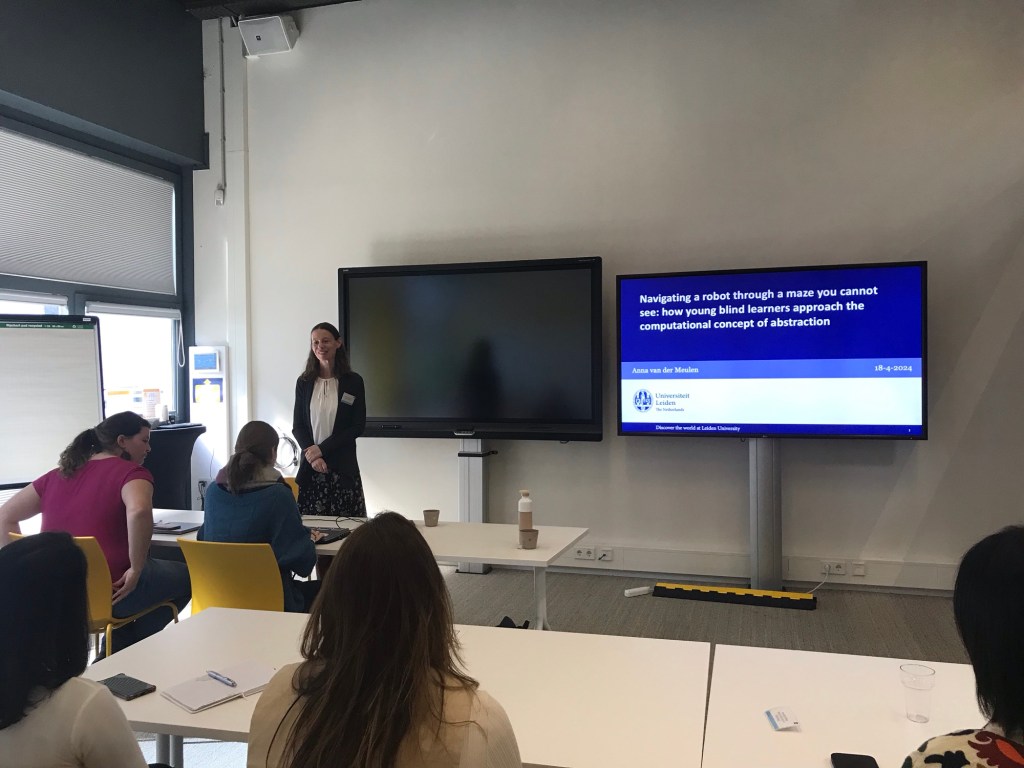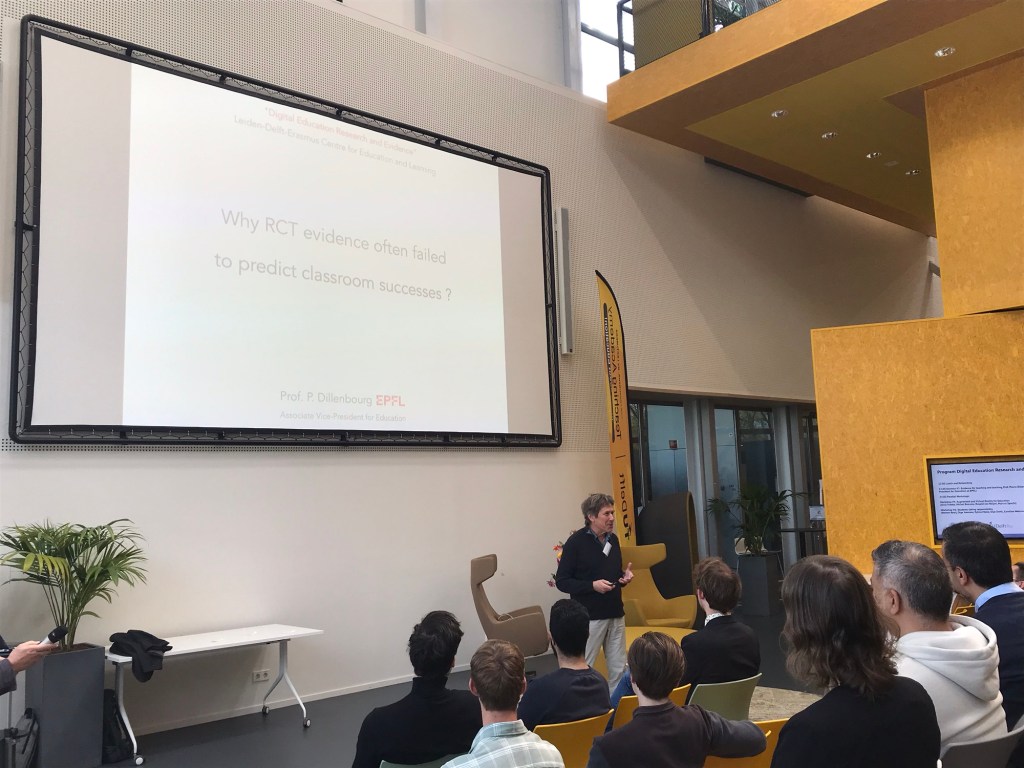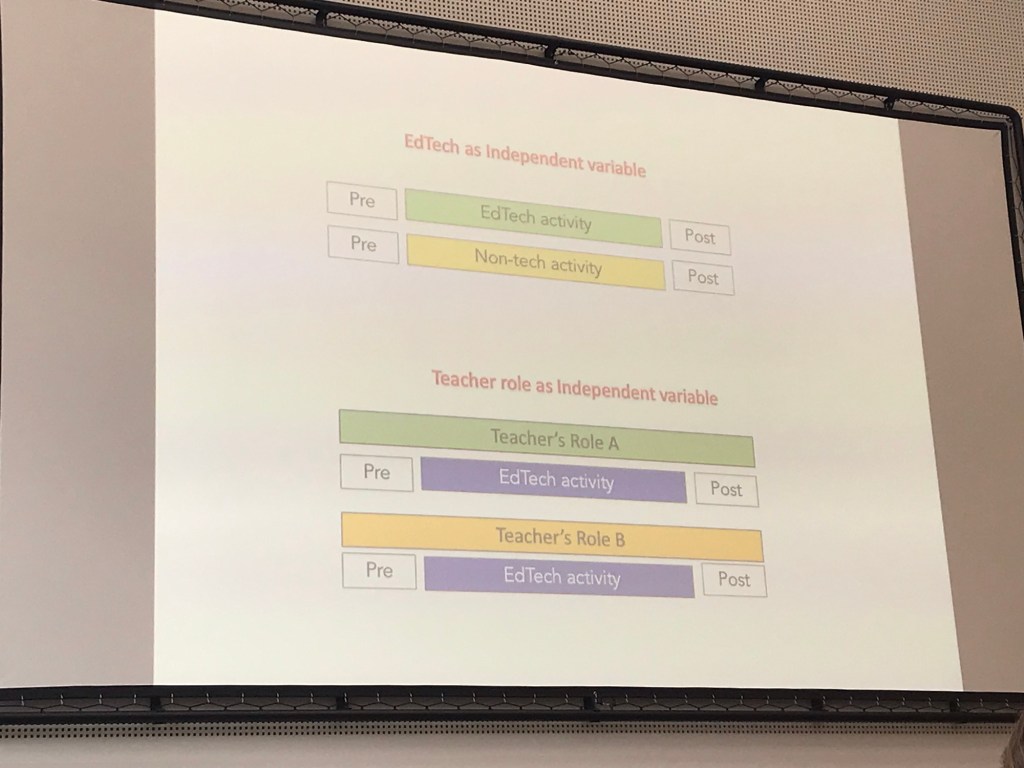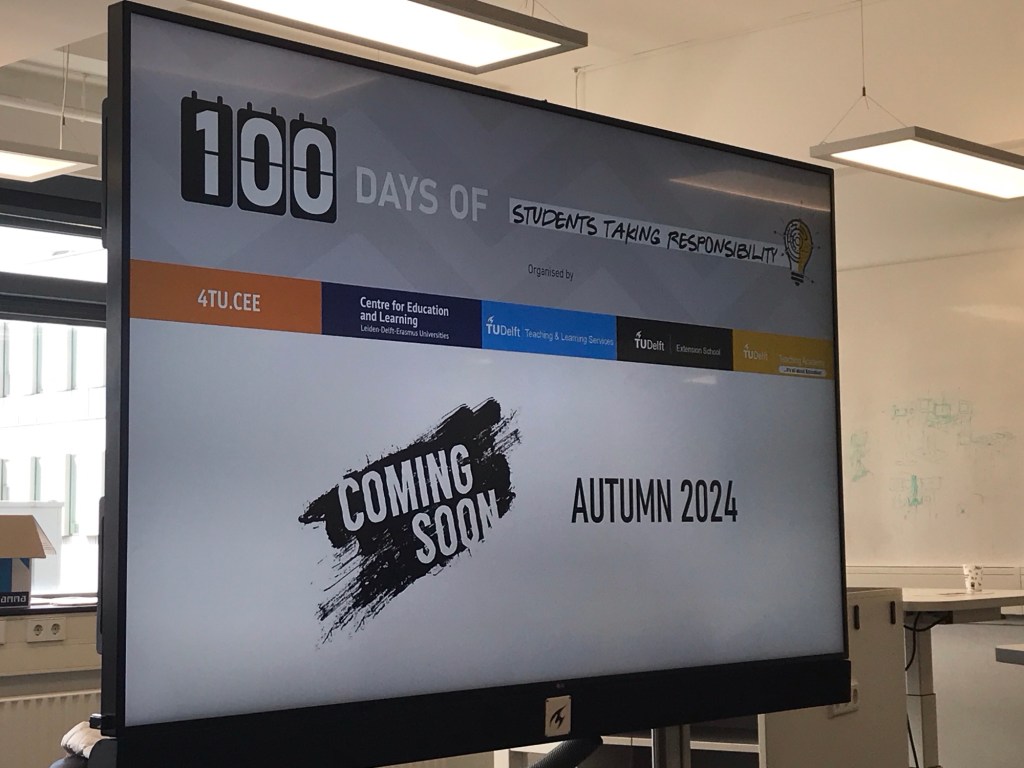On 18 April 2024, I attended the annual meeting for digital education research and evidence at the Teaching Lab, TU Delft. I enjoyed this opportunity to learn more about the EdTech field.
I also attended this event before, see my previous posts here:
2019 Learning Analytics in Higher Education
Prof. Marcus Specht opened the day with a keynote on Digital Education Research, Evidence from Designing the Future of Education.

The first keynote was:
Artificial Intelligence in Education
Prof. Mautlu Cukurova took us through this very relevant topic.

One of my own most interesting takeaways from this was the human-AI interaction and the implications of this. For example, though AI is already integrated in many areas of our life, and can help us significantly, humans generally don’t currently trust AI. I spoke about this myself in my AI Anxiety to AI Optimism Toastmasters speech.
He presented the model shown in the photo, ranking the automation through AI, and the level of human control. There were interesting examples, one being that AI can be used to observe and report.
Workshop Round 1
For the first round of workshops, there were 3 options:
– Learning Analytics landscape in the Netherlands
– Evaluating educational innovation
And I chose the third:
Inclusive Programming Education
Shirley de Wit, PhD candidate, TU Delft share some highlights from her research on gender diversity in STEM.

Three reasons why we should care is:
– There are many roles available in this field
– Financial independence for future proof jobs
– Societal impact – so many aspects of tech affect us all, and we need less bias
In the group we also talked about how to also ensure that the male teachers and students are not excluded. It’s a challenge to ensure balance, but also to recognise and address the real issues. One suggestion was to personalise education such as offer the same assignment, but with some slight differences to pique interest regardless of gender.
This links back to my own Masters research on how EdTech can offer more options in education, but ideally without adding to the workload.
The session was led by Fenia Aivaloglou.
Julia Bolt took us through Hedy, a gradual programming language, which she based her Masters’ thesis on. She’s now doing a PhD at Vrije Universiteit Amsterdam. This is focussed on the understanding of programming for novices based on the interface.

We had a very mixed audience of researchers, teachers and educational consultants. I’d never heard of this so had some catching up to do, but essentially I recognise that learning programming is a digital skill that is increasingly important.
She addressed that programming does not have to be something you learn alone, but can be more social. Scratch is a “toy” to start programming, then the next logical step is Python…but you can also easily make mistakes and create a cognitive barrier.

Hedy offers progressive learning, offering gradual learning of the programming rules.
It is also multilingual, available in 49 languages, as opposed to the usual standard English-only that most programming tools offer.
You can try this open source tool at hedy.org
Anna van der Meulen is researching inclusivity in programming education, and ensuring accessibility for all.

Learners need to be able to participate, use the computer, be motivated/involved, and use conceptual thinking. Anna is focussing on learners with visual impairments.
Was good to then talk to a few more attendees over a delicious and healthy lunch.

Evidence for teaching and learning
Prof Pierre Dillenbourg was the next keynote. A few of my notes are below.

His Masters thesis was in machine learning, back in the 1980s, and has been active in this field since.
One of the main challenges is that EdTech is often not scalable…things can work well in one classroom – but not for 3000 teachers.

Being forced to make a predication – especially a wrong prediction – is a good learning tool, and some of their experiments in logistics did this.
One of the most interesting points for me was the role of the teacher.

From a sage on the stage, to a guide on the side – what is the role of the teacher? If you only compare an EdTech activity to non tech, researchers are ignoring a crucial element. Some teachers are very engaged – and some are even absent – this, of course, significantly affects the EdTech success.
Fantastic technology? Or fantastic teachers? Don’t try to prove that tech is better than paper – it’s like asking: “Is red wine better than skiing?”

Does your EdTech solution integrate non-tech activities e.g. print pieces of paper and draw. What will happen outside the application?
Can we anticipate what is to come and plan for this? It’s very hard. Comparison of making a garden – later it’s hard to move a tree! But with computer simulations we can experience this in advance and adapt.
RCT = Randomised control tryout

The main point that I understood is that when we do any kind of research or try new technology, there are so many small variables we often don’t take the impact into account. For example, logins and two factor authentication may take a lot of time and take away from the learning experience.
Overall, learners do not learn independently of the teacher, tech or no tech. The sequence of learning is also very important. These should be considered as variables.
The teacher role also should be seen in this context as what the teacher is doing during the use of the technology – not the personality of the teacher.
Workshop Round 2
The choices here were:
– Bridging the gap between Machine Learning/AI Education and application in Education
– Augmented and Virtual Reality for Education
And the one I attended…
Students taking responsiblity

Olga Ioannou, Sylvia Mooij, Silje Dehli, Caroline Wehrmann, Remon Rooij
Remon started with asking why we were here, and many of the teachers have difficulties with students not taking initiative or being motivated. The IDEE Teaching Academy team is looking into these and other challenges in education, in this case specifically in engineering.
One comment: It’s important for students to feel like they have a say in their education.
Its not prescriptive, what works in one teaching context may not work in another, but trying to move towards a pedagogical pattern language.
This is a 5 year project, only just started 6 months ago, there is a community and we are welcome to be a part of it.

The future of Higher Education and the role of research
Prof. Marcus Specht led this panel discussion to wrap up the day.
Still finalising this post…check back later or contact me for more info…